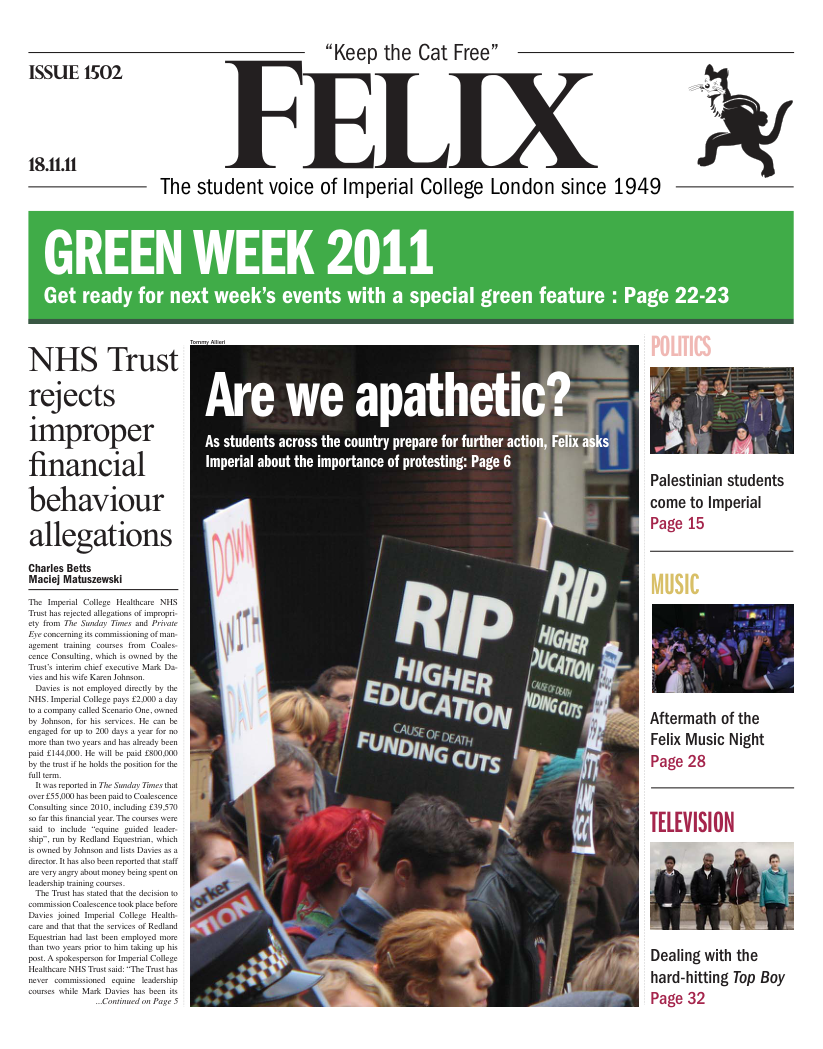Calm down dear, it's only an opinion!
Felix's Deputy Editor on the perils of the Comment section

Silvio Berlusconi has proved himself a great salesman and a poor statesman. Sounds good, doesn’t it? Has a certain panache. The only thing is, I didn’t come up with it. The succinct, elegant sentence was written by Beppe Severgnini, the reputable Italian political commentator, in a recent Financial Times column. My opinions on Berlusconi’s reign as Prime Minister of the eurozone’s third largest economy are limited to what I have read in national media; I have never met an Italian politician, let alone voted in an Italian election. And herein lies the problem with student opinion pieces: they cannot be more than a regurgitation of other, professional, columnist’s original thoughts.
A newspaper’s prime objective is to inform the reader. It is fair to ask how this can achieved by voicing the opinions of students whose best source of information is Question Time and Newsnight. Arguably, the News section of Felix is the best place where the reader can find unique, researched journalism in this publication. Unlike Nick Robinson or Simon Jenkins, student columnists don’t lunch with top brass politicians, patiently digging for the truth behind the headlines.
Felix’s key purpose is to act as a hub for students to express their creativity.
Yet, unlike national media, Felix’s key purpose is to act as a hub for students to express their creativity. At a predominately science-based university, Felix holds a unique role in providing a much needed artistic outlet and puts to bed the misconception that Imperial students are all geeky, singularly focused boffins. The News section is there to inform the reader, both students and staff, of college events in a similar vein to local town newspapers. The Comment section of Felix is debatably a more selfish place where students get to indulge in forming, at times ill-constructed (much like this piece), rationalised opinions on, primarily, current affairs.
This paper has, over recent weeks, published many articles on religion. It’s encouraging to see that students take a keen interest in the issues, but if I want to form my own view on the subject I will read Dawkins’ infamous book and speak to the College Chaplain personally. The same goes for the Jeremy Kyle debate; if I want to make a judgment, I’ll watch the show for myself. And, more recently, if I wish to form an opinion on the Occupy London movement, I’m better off going to St Paul’s than reading an atrociously formed argument in Felix. In short, I’ll resort to more robust, better-informed outlets.
As a result, if I disagree with someone’s opinion in this paper, I am likely to turn a blind eye and move on. Nobody likes to be demonised by their peers for something they have written, especially when one has often meant the tone to be light hearted. Any single Comment piece in Felix merely reflects the thoughts of one student, some you’ll agree with and others you won’t; each has been written to entertain. Each has also been founded on incomplete subject knowledge, and as such should be taken, as per Mr Berlusconi’s self-confessed sexual prowess, with a pinch of salt.








